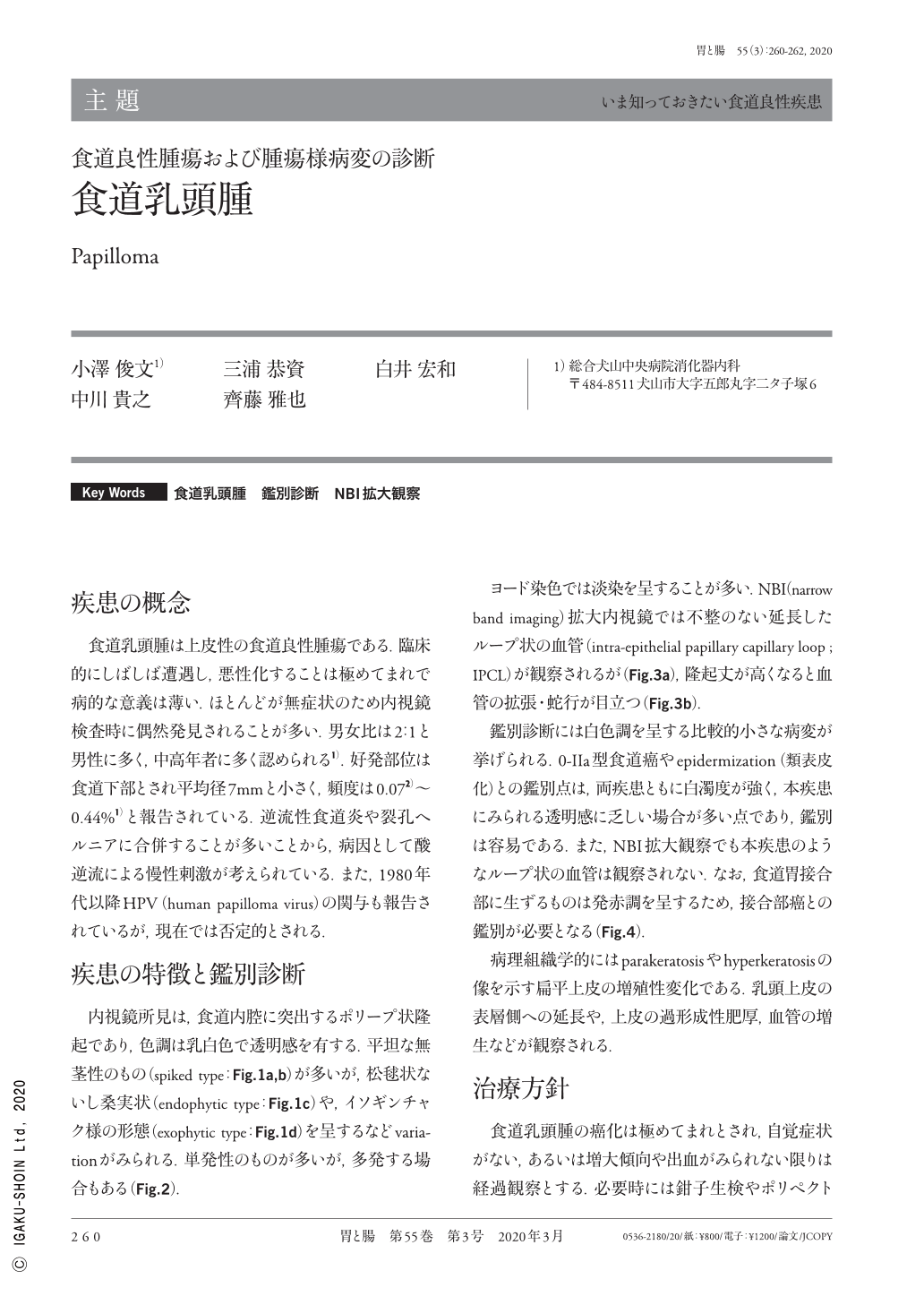- 著者
- 川上 恵 北田 徳昭 米澤 淳 岡村 みや子 尾崎 淳子 池見 泰明 中川 俊作 今井 哲司 中川 貴之 土井 恵太郎 秋月 修治 武藤 学 寺田 智祐
- 出版者
- 一般社団法人 日本医薬品情報学会
- 雑誌
- 医薬品情報学 (ISSN:13451464)
- 巻号頁・発行日
- vol.25, no.2, pp.83-90, 2023-08-31 (Released:2023-09-15)
- 参考文献数
- 18
Objective: In patients with specific backgrounds, comprehensive identification of health problems and proactive pharmacist intervention are crucial to providing safe and effective medical care. However, there are insufficient reports on chemotherapy regimen selection and supportive care management in patients taking immunosuppressants. In this study, to circumvent adverse events, pharmacists intervened with a patient administering tacrolimus (TAC) using known information, focusing on multiple factors attributable to the patient in addition to drug interactions.Methods: The patient was a male in their 70s who received palliative chemotherapy for gastric cancer during their dermatomyositis treatment with TAC. Pharmaceutical support for cancer chemotherapy was provided using the following four procedures: (1) Patient information was collected from interviews and electronic medical records to identify patient-specific problems; (2) Basic pharmacological information was collected from tertiary sources, focusing on the interaction between TAC and aprepitant (APR). Furthermore, clinical reports were collected, and the pharmacokinetic drug interaction significance classification system was used for quantitative predictions; (3) The information obtained in steps 1) and 2) was evaluated, and comprehensive proposals linked to the patient information were presented; (4) Adverse events, TAC blood level, and patient outcomes were monitored after treatment initiation.Results: A chemotherapy regimen consisting of S-1/oxaliplatin therapy without APR was selected. The adverse effects were controllable, and the treatment was completed without many adverse events. Meanwhile, TAC adherence was unaffected by cancer chemotherapy, and the TAC blood concentration or dose ratios were controlled within the same range as previously reported.Conclusion: In cancer chemotherapy, for cases with limited evidence or information, comprehensive pharmaceutical support was provided using known patient information, considering multiple patient factors. This report is beneficial as an example of supportive care management by a pharmacist and contributes to providing optimal service in cases with specific backgrounds.
- 著者
- 伊藤 聡 小西 真治 村上 哲哉 新田 裕樹 阿南 健一 中川 貴之 本田 中 赤木 寛一
- 出版者
- 公益社団法人 土木学会
- 雑誌
- 土木学会論文集F2(地下空間研究)
- 巻号頁・発行日
- vol.76, no.1, pp.14-31, 2020
<p> 地下鉄開削トンネルの縦断方向の一部に大きな沈下や沈下に伴うひび割れが多く見られ,その使用にあたって耐荷性能を精度よく評価することが課題となっていた.そこで,鉄筋ひずみの調査を行ったところ,トンネルの中立軸位置が設計計算の値と大きく異なることがわかった.この要因として,トンネルにひび割れが生じることでトンネル縦断方向に伸長する挙動が,両端の変状が起こっていない部分により拘束されることにより見かけの軸力が発生するといったメカニズムを想定し,軸力の算定方法を検討した.さらに,この軸力を用いて構造計算を行った結果,見かけの軸力を与え,トンネル形状を再現した疑似3次元モデルを用いることで,トンネルのひび割れ状況などの変状を精度よく再現できることがわかり,軸力の発生メカニズムの妥当性が確認できた.</p>
2 0 0 0 —食道良性腫瘍および腫瘍様病変の診断—食道乳頭腫
疾患の概念 食道乳頭腫は上皮性の食道良性腫瘍である.臨床的にしばしば遭遇し,悪性化することは極めてまれで病的な意義は薄い.ほとんどが無症状のため内視鏡検査時に偶然発見されることが多い.男女比は2:1と男性に多く,中高年者に多く認められる1).好発部位は食道下部とされ平均径7mmと小さく,頻度は0.07 2)〜0.44%1)と報告されている.逆流性食道炎や裂孔ヘルニアに合併することが多いことから,病因として酸逆流による慢性刺激が考えられている.また,1980年代以降HPV(human papilloma virus)の関与も報告されているが,現在では否定的とされる.
2 0 0 0 痛みの慢性化における脊髄内アストロサイトの役割に関する研究
ATPを脊髄くも膜下腔内に投与すると、持続時間の短い機械的痛覚過敏が惹起され(〜20分)、引き続き、投与15〜30分後にアロディニアが誘導され、その後3〜4週間持続する長期持続性アロディニアが惹起された。本モデルでの脊髄内グリア細胞の活性化の経時変化を検討したところ、ミクログリアは比較的早い時期(誘導〜移行期)、少し遅れてアストロサイトが活性化された(移行〜維持期)が、その後、アロディニアは持続しているにも拘わらず、どちらも定常状態に戻りつつあった。さらにミクログリアおよびアストロサイトの活性化阻害薬、および数種のMAPK阻害薬を用いた検討などから、それぞれの活性化状態を示す時期と対応してアロディニアの惹起に関与することを示した。これらは、脊髄内のミクログリアは主に慢性疼痛の誘導に、アストロサイトは慢性疼痛への移行に関与することを示している。また、主にアストロサイトに発現するグリア型グルタミン酸トランスポーターGLT-1は、炎症性疼痛モデルおよび神経因性疼モデルにおいて、その発現量あるいは細胞膜における局在量が減少していた。組込えアデノウイルスを用いて脊髄内にGLT-1遺伝子を導入すると、急性痛に対しては影響を与えないものの、炎症性疼痛や神経因性疼痛の発症をほぼ抑制した。これらの結果は、アストロサイトによるGLT-1を介したグルタミン酸取り込み機構の破綻が、慢性疼痛発症に重要な役割を果たしていることを示す。さらに、このGLT-1局在変化の分子機構を明らかにするため、GLT-1-EGFP融合タンパク質を導入できる組換えアデノウイルスを作成し、培養神経-グリア共培養系を用いてタイムラプス顕微鏡下でアストロサイトでのGLT-1の局在変化を解析した。その結果、グルタミン酸の処置によりGLT-1は1時間以内に細胞内に移行しクラスター状に集積すること、また、GLT-1を介したNa^+流入が必須であることを明らかにした。
- 著者
- 岡部 篤行 佐藤 俊明 岡部 佳世 中川 貴之 今村 栄二 松下 和弘 長野 一博 石渡 祥嗣 飴本 幸司 林 良博 秋篠宮 文仁
- 出版者
- Yamashina Institute for Ornitology
- 雑誌
- 山階鳥類学雑誌 (ISSN:13485032)
- 巻号頁・発行日
- vol.38, no.1, pp.30-39, 2006
当報告書は,無線LAN位置システム(以下システム)を放し飼いニワトリの軌跡追跡に適用可能かどうかを調べた結果を報告するものである。システムは,連続的な地面上にいるニワトリの位置を1 mのグリッド交差点上の点として表し,ニワトリの軌跡はその点列として表す。システムは,ニワトリの位置を1秒ごとに記録することができる。実験は8羽のニワトリと2羽のホロホロチョウを170 m×90 mの広さの公園に放って5日間にわたりその軌跡を観察した。分析に利用可能なデータは3日間得られた。システムによって得られる位置のデータは雑音を含むため,位置データは確率変数として扱った。データ分析により,位置の精度は,確率0.95で2.6 m,すなわち,真の位置が,観察された位置を中心に半径2.6 mの円の中にある確率が95%であると判明した。ニワトリの生活圏は,その場所にニワトリがいた確率密度関数として表現した。その関数はバンド幅が2.6 mのカーネル法で推定をした。軌跡は移動平均で推定した。実験の結果,システムは放し飼いニワトリの軌跡追跡に適用できることが判明した。
1 0 0 0 OA 大腸憩室出血への対応
- 著者
- 杉山 宏 吉田 健作 足達 広和 中川 貴之 安田 陽一
- 出版者
- 一般社団法人 日本消化器内視鏡学会
- 雑誌
- 日本消化器内視鏡学会雑誌 (ISSN:03871207)
- 巻号頁・発行日
- vol.57, no.5, pp.1296-1311, 2015 (Released:2015-05-29)
- 参考文献数
- 26
- 被引用文献数
- 1
前処置不良下で行う通常内視鏡では大腸憩室出血の診断は困難である.高率に診断するためには洗腸と透明フードが不可欠である.病歴,薬剤歴,直腸診所見から憩室出血を疑ったらまず造影CTを行い,そして速やかに洗腸し,フードを装着した内視鏡を行う.フードを憩室周囲に軽く押し当て憩室を吸引,反転することで内部の観察ができる.また,フードを憩室周囲に軽く押し当てたまま鉗子孔より水を注入すると,非責任憩室では内部に凝血塊や血液があっても洗浄にて容易に除去されるが,責任憩室では容易には除去されず,鑑別できる.露出血管を有するびらんを認めた憩室が責任憩室である.憩室出血の止血には組織傷害が軽微なクリップ法を第1選択にすべきである.クリップ法ではできるだけクリップにて露出血管を把持するように試みる.循環状態が不良で洗腸が困難な重症例や,内視鏡的止血術の抵抗例にはIVRが有効であるが,偶発症に注意が必要である.
- 著者
- 渡邊 学 チェン アイリス 森 美香子 上野 絵美 中村 好孝 薮本 恵美子 阿部 佳澄 椿 真理 今村 清美 関森 悦子 西澤 理絵 若栗 浩幸 中川 貴之 望月 学 西村 亮平 佐々木 伸雄 鈴木 穣 菅野 純夫
- 出版者
- 日本ペット栄養学会
- 雑誌
- ペット栄養学会誌 (ISSN:13443763)
- 巻号頁・発行日
- vol.15, no.1, pp.1-6, 2012-04-10 (Released:2013-01-25)
- 参考文献数
- 15
イヌ舌組織における遺伝子発現、味覚受容体の構造の検討を行うため、遺伝子発現頻度解析および味覚受容体の構造解析を行った。正常イヌ舌組織よりRNAを抽出し、次世代シークエンサーを用いてシークエンスを行った。シークエンスタグをイヌゲノムへのマッピングを行い各遺伝子の発現頻度を解析した。味覚受容体にマップされたシークエンスタグをもとに味覚受容体TAS2R40遺伝子およびアミノ酸配列を解析した。RNA-seq解析の結果、984,903シークエンスタグを得た。これらを用いてイヌゲノム上へのマッピングを行った。同定された遺伝子の中で、S100 calcium binding protein A8がもっとも高い発現を示した。また、骨格筋系遺伝子、心筋系遺伝子や解毒系遺伝子群の発現が認められた。味覚受容体をコードする遺伝子構造解析を行ったところ、TAS2R40、TRPV1、PKD1は既存の遺伝子構造よりも5' 端側にマップされるタグが認められ、これまでの遺伝子配列情報よりも完全長に近い遺伝子構造が推測された。また、TAS2R40遺伝子がコードするアミノ酸配列の相同性はヒトと76%マウスと62%であった。
1 0 0 0 OA 無線LAN位置システムの放し飼いニワトリとホロホロチョウの軌跡追跡への適用可能性
- 著者
- 岡部 篤行 佐藤 俊明 岡部 佳世 中川 貴之 今村 栄二 松下 和弘 長野 一博 石渡 祥嗣 飴本 幸司 林 良博 秋篠宮 文仁
- 出版者
- 公益財団法人 山階鳥類研究所
- 雑誌
- 山階鳥類学雑誌 (ISSN:13485032)
- 巻号頁・発行日
- vol.38, no.1, pp.30-39, 2006-09-30 (Released:2009-02-13)
- 参考文献数
- 5
当報告書は,無線LAN位置システム(以下システム)を放し飼いニワトリの軌跡追跡に適用可能かどうかを調べた結果を報告するものである。システムは,連続的な地面上にいるニワトリの位置を1 mのグリッド交差点上の点として表し,ニワトリの軌跡はその点列として表す。システムは,ニワトリの位置を1秒ごとに記録することができる。実験は8羽のニワトリと2羽のホロホロチョウを170 m×90 mの広さの公園に放って5日間にわたりその軌跡を観察した。分析に利用可能なデータは3日間得られた。システムによって得られる位置のデータは雑音を含むため,位置データは確率変数として扱った。データ分析により,位置の精度は,確率0.95で2.6 m,すなわち,真の位置が,観察された位置を中心に半径2.6 mの円の中にある確率が95%であると判明した。ニワトリの生活圏は,その場所にニワトリがいた確率密度関数として表現した。その関数はバンド幅が2.6 mのカーネル法で推定をした。軌跡は移動平均で推定した。実験の結果,システムは放し飼いニワトリの軌跡追跡に適用できることが判明した。
